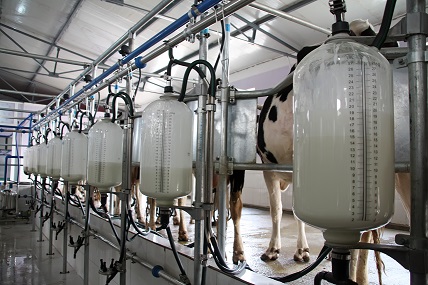In a strategic move to transform Nigeria’s dairy industry, the Federal Government has partnered with Nestlé Nigeria to equip local farmers with essential technical skills aimed at boosting milk production and improving rural livelihoods. The initiative, unveiled during the 2025 World Milk Day celebrations, marks a new chapter in efforts to strengthen the country’s dairy value chain through practical, mid-level vocational training.
The partnership was formalised at a signing ceremony between Nestlé Nigeria and the Ministry of Livestock Development. The programme is set to offer targeted training in milk production, processing, hygiene, and farm management to improve both the quality and quantity of milk produced locally.
Nigeria’s Livestock Minister, while speaking at the event, highlighted the government’s renewed focus on livestock development through the National Livestock Growth Acceleration Strategy. According to him, the government is investing in the livestock value chain and animal nutrition systems such as feed and fodder development to improve overall productivity. He announced that the new partnership with Nestlé will lead to the establishment of a Dairy Training Centre in Paikon Kore, Gwagwalada. This centre will focus on developing mid-level manpower and providing farmers with modern, hands-on training to enhance dairy yields and farm efficiency.
Nestlé Nigeria’s Managing Director stressed the broader significance of the collaboration, noting that it represents more than a formal agreement. It reflects a joint commitment to closing critical skill gaps within Nigeria’s dairy sector, which remains underdeveloped despite the country’s vast agricultural potential. By aligning global expertise with local realities, Nestlé hopes to raise industry standards, generate employment, and contribute meaningfully to Nigeria’s economic growth.
Nestlé’s involvement in dairy development dates back to 2019 with the launch of its Dairy Development Project. Since then, the company has created 83 dairy cooperatives, directly supporting over 3,000 milk producers. More than 2,000 farmers have received training in best practices, over 1 million liters of raw milk have been aggregated, and infrastructure such as boreholes and water troughs has been constructed to address access to clean water—an essential factor in maintaining animal health and milk hygiene. Additionally, nearly 37,000 cattle have been vaccinated under the programme.
The results have been noteworthy. Between 2021 and 2024, milk rejection rates fell from 12 percent to just 5 percent. Monthly earnings for participating milk producers increased dramatically—from an average of ₦70,000 in 2019 to ₦250,000 in 2024—highlighting the programme’s impact on economic empowerment.
Nestlé also recently launched a Dairy Demonstration Farm designed to showcase how modern dairy practices can increase milk yield from just 1 liter to more than 10 liters per cow per day. This success led the Livestock Minister to invite the company to convert the demonstration farm into a full-fledged training institute, a proposal Nestlé readily embraced.
This collaboration represents a tangible step toward closing Nigeria’s dairy supply gap while creating sustainable income opportunities for smallholder farmers. As the new training centre gets underway, expectations are high that it will serve as a model for broader dairy development efforts across the country, advancing both food security and rural economic growth.










